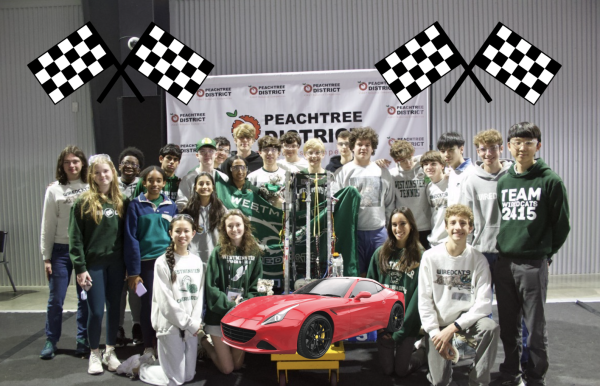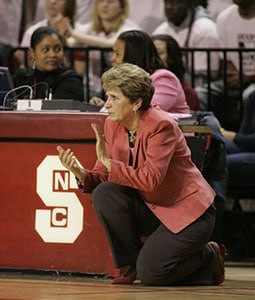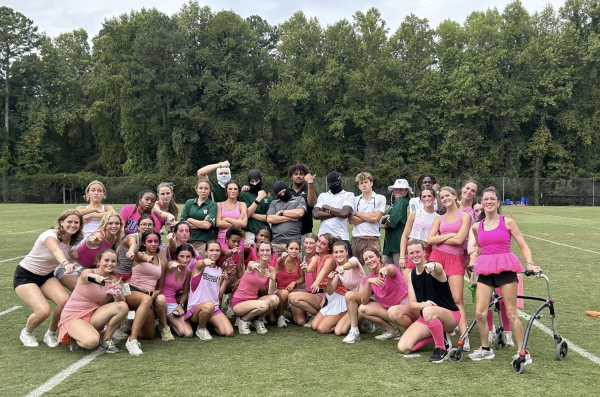Westminster to offer trash can naming rights as a new philanthropic incentive
In a groundbreaking move to increase donations, the Office for Institutional Advancement announced that donors whose gifts to Westminster surpass a certain threshold will have a trash can named in their honor.
“We came up with the idea during an OIA retreat in Transylvania,” said vice president of institutional advancement Emilie Henry. “We were in the middle of a team-building exercise trying to design the most horribly air-conditioned building possible but got distracted by the fascinating history of the naming rights for Dracula’s castle. Then, someone suggested offering naming rights to things besides buildings, and we realized trash cans were the perfect place to start.”
The new initiative has captivated alumni, triggering a flurry of donations that has given Westminster enough money to accelerate the production of the Goodbye Center. For those unaware, the Goodbye Center, a state-of-the-art building containing a 200-square-foot video screen that displays a “thanks for coming” message, will ensure visitors leave Westminster with a favorable impression.
This “trash can fever” isn’t limited to alumni either, as students have expressed increased satisfaction with the Westminster administration since trash cans started getting named.
“Seeing trash cans named after people really has opened my eyes,” said a student. “Now I understand why Westminster is so grueling. Sleep deprivation and a crushed love for learning is a small price to pay for a future where I’ll have enough money to have my name on a trash can.”
The administration anticipates an increase of Westminster students who “love, challenge, and lead change” due to the examples set by the unknown donors.
“Memorializing donors, who students likely never heard of, gives them something to aspire to,” said Henry. “Why on earth would you suggest naming things for people that impacted students’ lives? Everyone knows that a building named after a mysterious person inspires students vastly more than buildings named after a beloved campus figure.”
Henry has other innovative ways to draw donations, especially for those who do not feel enticed by the opportunity to claim a trash can.
“Imagine names on whiteboards, chairs, even toilets,” said Henry. “The beauty of this idea is its unlimited scalability.”
With Henry proclaiming the benefits of changing Westminster’s official color to neon green, I respectfully concluded the interview by walking out of her office, only to find myself in the middle of OIA. Suddenly, a MacBook flew at my face and everyone started screaming.
“We’d never seen a real student before, so everyone got a little freaked out,” said a Westminster employee. “You always hear rumors they exist, but, to be honest, I never believed it. I thought we were just making up ideas for a game or something, not actually directing the education of a bunch of kids.”
After this earthshaking realization, the OIA employees vowed to establish relationships with students, so that they could better understand the people they direct. Many administrators hope that this never-before-seen idea of putting a student’s well-being first will benefit Westminster’s entire community. Many are still doubtful.
“I don’t think it will work,” said an anonymous AP Biology teacher. “Students won’t get any benefit if we facilitate a non-competitive, interest-driven approach to education. They’ll just be coddled. Plus, failing kids is what brings me joy, so telling kids that school is about learning completely ruins the fun part of teaching.”
On the way out of OIA, I observed a group of class officers warily bring Henry a plan to phase out advisement, just to get chased out of her office by a pack of hyenas. Despite all of this, I still remain hopeful. Seeing students and the administration begin to engage in dialogue helps me to believe in a future where Westminster will prioritize learning instead of grades, will recognize students as kids and not robots, and will leave at least some trash cans plaque-free.
Note: This article, like all of our articles in the April Fool’s edition, is satire. Laugh.










